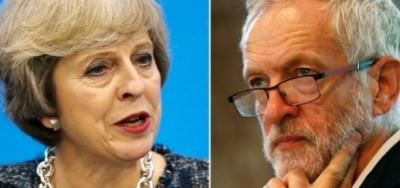Employment figures are no longer trusted
The imminent British general election has in common with the pending New Zealand general election that both elections will swing on the issue of immigration rather than the face value and rather more acceptable and perennial matter of trade and the economy.
In Britain the topic hinges often unspokenly on the nation’s ability to accommodate immigrants in the refugee category.
In New Zealand the issue is a wider one and encompasses especially the demand-over-supply pressure that liberal immigration policies have on infrastructure in general and residential accommodation in particular.
In Britain the issue devolves to a greater degree on the nation’s National Health Service which is viewed as buckling under the strain of coping with the influx of immigrants from everywhere.
Both countries vigorously portray a belief in the dual pivotal theorems of multi-culturalism and diversity even though in the UK the operating process in effect remains that of the 19th century United States which is the melting pot one.
In both countries immigration means different benefits to each of the two major political parties.
Immigrants carry value to labour parties because the new arrivals in the political process are considered to cast their new votes in the general direction of the socialist party, however nominally socialist it in fact is.
For the conservative parties immigrants generate industrial demand and thus the economic growth that conservative parties are expected to deliver.
In between these two fixed points are a number of tender topics centred on the pressure such influxes bring to bear on both ends of the voting spectrum with the poor at one end and the prosperous on the other.
As is frequently heard in New Zealand, and increasingly so in the run up to general election, the negative pressure is focussed at the poorer end simply because those of limited means find it harder to compete with the additional competition for residential accommodation, especially in the nation’s northern and most populous industrial regions.
The higher income groups with their invested capital are seen as benefiting from this. But they are also sensitive to the pressure immigration puts on essential services funded by taxes that directly or indirectly they see themselves as funding.
The common element in both countries is the refugee-category immigration cheerleading especially from the non-productive services sector.
The position in Britain between the opinion centres has suddenly become scrambled before New Zealand observers as both ends of the spectrum have taken up the cause of the other.
The Daily Mail, for example, the tribal noticeboard on the nation’s middle class, in recent weeks has trumpeted the way in which Britain’s Labour Party led by Jeremy Corbyn has closed the gap on the once seemingly unchallengeable lead held by Theresa May’s ruling conservatives.
This narrowing the gap news is though presented with ominous conjecture about Labour’s deep down commitment to letting in more immigrants.
A de-coding of this indicates that the middle class tribune has detected a signal danger –- that of the conservative vote becoming complacent to the point at which it will not bother to deliver itself to the polling booths on the election day.
A feature of both elections will be the distrust of unemployment figures once the stand-out indicator in both countries of their economic state of health.
The reason is that these figures are now widely distrusted, as was experienced in the run-up to Brexit, because they carry no indication of the value of the job in terms of pay, or whether the job is part time, full time, or temporary.
Similarly voters have now largely woken up to such statistical wheezes as people taking part-time courses on any subject at all considered officially as being employed.
In Britain immigration hovers as a national security issue first and then as putting pressure on available public resources.
In New Zealand this is reversed.
The British general election is on June 8 this year. New Zealand’s on September 23.
| From the This email address is being protected from spambots. You need JavaScript enabled to view it. || Saturday 3 June 2017 |||

